We’ve tried to keep it short this week. But the politics is still sticky on a number of issues and the culture wars are not over…
Research
REF results: you’ve probably read everything you want to, but here is a blog from Dave Radcliffe of the University if Birmingham on QR funding: QR allocations could be seen as the antithesis of levelling up. Funding is concentrated into a handful of established universities. It is even one of the last bastions of London weighting (£34m is allocated to London institutions in addition to their QR allocation). Research England will need to determine what it means to continue funding excellent research wherever it is found.
Researcher responsibility: The Lords Science and Technology Committee ran a sessions on delivering a UK science and technology strategy. Evidence was provided by:
- Professor Dame Ottoline Leyser, Chief Executive Officer, UK Research and Innovation (UKRI)
- Lord Browne of Madingley, Co-Chair, Council for Science and Technology (CST)
- Dr Beth Mortimer, Royal Society University Research Fellow, University of Oxford
- Professor Sir Richard Friend, Cavendish Professor of Physics, University of Cambridge
The first session focused on the Government’s strategy for science and technology, its commitments and risks, and the capacity to deliver this. The second session discussed the role played by academia and researchers in achieving the UK’s goal of becoming a science and technology superpower by 2030. Summary of both sessions provided by Dods here.
China: George Freeman (Minister for Science, Research and Innovation) published a written ministerial statement announcing that BEIS will end its bilateral Official Development Assistance (ODA) funding in China. BEIS will not be using ODA funding to support research and innovation partnerships with China as they’ve previously done through ODA vehicles, such as the Newton Fund and Global Challenges Research Fund. Existing ODA-funded activity with China through these will finish by the end of financial year 2022/23. The technical assistance provided through the UK Partnering for Accelerated Climate Transitions programme (UK PACT) will also end (same timescale). Instead technical assistance to China on climate change issues will be smaller in scale and use non-Official Development Assistance sources.
Visa fees limit talent: UUK press the Home Office for change; Universities UK (UUK) lodged a report with the Home Office highlighting that visa fees of more than £15,000 for a researcher and their family to come to the UK is a major problem that academics and researchers face when trying to progress their careers in the UK. UUK say the UK Government’s own research suggests the UK must attract an additional 150,000 researchers and technicians if it is to have the workforce needed to manage the government’s ambitious target to increase investment in research and development to 2.4% of GDP by 2027. The report highlights significant feedback from universities and international staff that the most expensive visa arrangements in the world could hamper UK universities from unlocking their significant potential to support the government’s targets. The analysis comes shortly after the recent Home Office announcement of further visa fee increases.
UUK raise the following issues:
- The total cost for an individual applying for a five-year visa through the Skilled Worker Route, bringing a partner and two children, amounts to a staggering £15,880. This is particularly prohibitive for mid-career researchers who may choose to take their families, and expertise, elsewhere.
- The immigration health surcharge (IHS) of £624 per year – and per person for dependents – is challenging for early-career researchers, with cases of researchers requesting shorter contracts to reduce the up-front cost of coming to the UK.
- A lack of recognition of the diversity of families, with a ‘sole responsibility’ test that prevents a dependent child coming to the UK with a single parent other than in very limited circumstances.
- A mismatch in requirements for Global Talent visas and other types of visa can leave some researchers able to apply for Indefinite Leave to Remain (ILR) after three years, while their dependents are not eligible to apply until after five years.
- Researchers can also find it difficult to transfer between institutions, with requirements for reapplication for visas, incurring more fees and bureaucracy.
UUK calls on the Home Office to:
- Undertake a benchmarking exercise to review visa application costs to ensure we are at least in line with our international competitors, if not more competitive.
- Enable applicants to pay health surcharges staggered over the lifetime of their visa, rather than requiring the total upfront.
- Review dependency visa costs to reduce the upfront financial burden for researchers with large families.
- Review and reform of the ‘sole responsibility’ test to be more inclusive to diverse family structures.
- Enable family members on dependent visas to apply for ILR after three years, in line with those on the Global Talent visa
- Enable visa application costs to be transferred when updating an applicant’s visa to a new institution.
Vivienne Stern MBE, Director of Universities UK International, said: The government has taken some welcome steps recently to make the UK more attractive to international research talent. We think they can go even further, and that doing so will contribute to making the UK one of the most exciting places in the world to pursue a research career. Simple steps to ease the financial and bureaucratic burden for applicants could make a massive difference to individual decision making, and help make the UK a magnet for talent.
UK AI R&D Commercialisation; The Office for Artificial Intelligence (AI) has published research on the UK’s AI R&D commercialisation process. The report was commissioned by DCMS to explores which channels are most effective at transforming AI R&D into marketable products. Read the full report here.
Most prevalent routes for AI R&D commercialisation in the UK
- University spinouts: businesses that grow out of a university research project, which attempt to transform research into a commercial product or service;
- Startups: businesses in the early stages of operations, exploring a new business model, product or service;
- Large firms that commercialise AI R&D: such as ‘Big Tech firms’, and also other large technology companies such as ARM, Graphcore, IBM, Netflix and Twitter;
- Direct hire and joint tenure arrangements: relationships between industry and academia that allow for a back and forth flow of AI talent between the two.
Grade Inflation
The Office for Students (OfS) warned universities and colleges to “steer clear of normalising post-pandemic grade inflation”.
- In 2010-11, 15.7 per cent of students were awarded first class honours. The proportion of students awarded the top grade has more than doubled, reaching 37.9 per cent in 2020-21.
- Nearly six in ten first class degrees are unexplained. Of the 37.9 per cent of students awarded first class degrees, 22.4 percentage points remained unexplained after the OfS had taken into account a variety of observable factors – including students’ prior entry qualifications and their background characteristics – which may affect attainment.
- By 2020-21 all universities and colleges included in the analysis saw significant increases in unexplained first class degrees when compared to 2010-11.
- Rates of first class awards have risen for all students, regardless of their entry qualifications. In 2020-21, 60.8 per cent of students with three As and above at A-level received a first class degree, compared to 33.5 per cent in 2010-11. The average rate of firsts for those entering with A-levels DDD and below has increased more than five-fold, from 5.3 per cent to 28.5 per cent.
Nick Holland, Head of Provider Standards at the OfS, has also written an accompanying blog post, in which he outlines what action the regulator is taking to tackle grade inflation.
Susan Lapworth, interim chief executive at the OfS, said:
- This report starkly demonstrates the scale of increases in degree classifications in our universities and colleges. Unmerited grade inflation is bad for students, graduates and employers, and damages the reputation of English higher education.
- ‘We know that universities and colleges used ‘no detriment’ policies to respond to the exceptional set of circumstances caused by the pandemic. But grade inflation has been a real credibility issue for the sector for some time and the pandemic cannot be used as an excuse to allow a decade of unexplained grade inflation to be baked into the system.
- ‘Our report is clear that there are a variety of reasons – including improved teaching and learning – that could lead to an increase in the rate of firsts awarded. However the sustained increase in unexplained firsts awarded continues to pose regulatory concerns for the OfS.
- ‘It is essential that students, employers and graduates can have confidence that degrees represent an accurate assessment of achievement, with credible and reliable qualifications which stand the test of time. Where this is not the case, the OfS has always said we are prepared to take action. We now have new conditions of registration in force and we will be publishing more details about our plans to investigate these issues shortly.’
We don’t have to point out that there has been a certain level of outrage at the “unmerited” word” – isn’t quality improvement supposed to be a good thing?
Queen’s Speech
Queen’s Speech – background briefing notes. The most relevant bits for HE:
Higher Education Bill “Reforms to education will help every child fulfil their potential wherever they live, raising standards and improving the quality of schools and higher education.” The purpose of the Bill is to: Ensure that our post-18 education system promotes real social mobility, helping students onto pathways in which they can excel, and is financially sustainable. This will help support people get the skills they need to meet their career aspirations and to help grow the economy.
The main benefits of the Bill would be:
- Ensuring people are supported to get the skills they need throughout their life. The Bill will enable the introduction of the Lifelong Loan Entitlement, a new and flexible way of providing loan support for post-18 study. This will provide individuals with a loan entitlement equivalent to four years of post-18 education (£37,000 in today’s fees) that they can use over their lifetime for a wider range of studies, including shorter and technical courses.
- Fulfilling the manifesto commitment to tackle uncontrolled growth of low-quality courses.
The main elements of the Bill are:
- Ensuring that appropriate fee limits can be applied more flexibly to higher education study within the Lifelong Loan Entitlement and that they can be effectively regulated.
- Subject to the conclusion of the higher education reform consultation:
- setting minimum qualification requirements for a person living in England to be eligible to get student finance support to enter higher education, helping to ensure students can pursue the best post-18 education and training options for them by taking pathways through which they can excel; and
- fulfilling the manifesto commitment to tackle uncontrolled growth of low quality courses by taking specific powers to control numbers of students entering higher education at specific providers in England.
Higher Education (Freedom of Speech) Bill (page 131)
The purpose of the Bill is to: Fulfil the Government’s manifesto commitment to strengthen academic freedom and free speech in universities in England.
The main benefits of the Bill would be:
- Ensuring that universities in England are places where freedom of speech can thrive for all staff, students and visiting speakers, contributing to a culture of open and robust intellectual debate.
- Ensuring that, for the first time, students’ unions will have to take steps to secure lawful freedom of speech for their members and others, including visiting speakers.
- Ensuring that academic staff feel safe to question and test received wisdom and put forward new ideas and controversial or unpopular opinions without risking their careers.
- Creating routes for staff, students and visiting speakers to seek redress if they suffer a loss as a result of specified duties being breached.
The main elements of the Bill are:
- Ensuring that freedom of speech and academic freedom in higher education is supported to the fullest extent. This legislation builds on existing freedom of speech duties on higher education providers and addresses gaps in current provision. For the first time duties will be imposed directly on student unions, as well as constituent colleges.
- Provisions include a new complaints scheme run by the regulator, the Office for Students, free to access for students, staff and visiting speakers who believe their speech has been unlawfully restricted, overseen by a dedicated Director of Freedom of Speech and Academic Freedom.
- Introducing new freedom of speech and academic duties on higher education providers, their constituent colleges and students’ unions. The Office for Students, will have the power to impose penalties for breaches.
- Creating a new role for the Director for Freedom of Speech and Academic Freedom at the Office for Students. The holder of this office will champion freedom of speech and academic freedom on campus,and have responsibility for investigations of infringements of freedom of speech duties in higher education which may result in sanctions and individual redress.
The government still don’t seem to appreciate the irony of this and their actions on other things: last week Donelan announced the Government would be temporarily suspending its engagement with the National Union of Students (NUS) over a series of allegations surrounding antisemitism.
The Government has published an update impact assessment (IA) for the Higher Education (Freedom of Speech) Bill. The revised IA shows they have increased their estimated net cost to business from £4.6m per year, to £4.7m. It has also increased its overall estimate costs to universities and SUs over the next decade from £48.1m to £50.3m. The original impact assessment was reported on by PoliticsHome’s Nao Hoffman last September, as concerns were raised about the potential financial burdens by Shadow HE Minister Matt Western.
Here’s a Wonkhe blog: As I’ve said before, in most of the on campus free speech cases you have an EDI complaint at one end of the see-saw, and a Free Speech justification at the other – which in turn implies an OIA complaint in the former, and a “Free Speech OfS Tsar” complaint at the other.
Levelling Up and Regeneration Bill (page 25) “A bill will be brought forward to drive local growth, empowering local leaders to regenerate their areas, and ensuring everyone can share in the United Kingdom’s success. The planning system will be reformed to give residents more involvement in local development.”
The purpose of the Bill is to:
- Level up the UK, grow the economy in the places that need it most and regenerate our towns and cities – giving people the opportunities they want, where they live.
- Improve the planning system to give communities a louder voice, making sure developments are beautiful, green and accompanied by new infrastructure and affordable housing.
The main benefits of the Bill would be:
- Laying the foundations for all of England to have the opportunity to benefit from a devolution deal by 2030 – giving local leaders the powers they need to drive real improvement in their communities.
- Improving outcomes for our natural environment by introducing a new approach to environmental assessment in our planning system. This benefit of Brexit will mean the environment is further prioritised in planning decisions.
- Capturing more of the financial value created by development with a locally set, non-negotiable levy to deliver the infrastructure that communities need, such as housing, schools, GPs and new roads.
- Simplifying and standardising the process for local plans so that they are produced more quickly and are easier for communities to influence.
The main elements of the Bill are:
- Placing a duty on the Government to set Levelling Up missions and produce an annual report updating the country on delivery of these missions.
- Creating a new model of combined authority: the ‘County Deal’ which will provide local leaders with powers to enhance local accountability, join up services and provide transparent decision making to rejuvenate their communities, increase their ability to reflect local preferences in arrangements including directly elected leaders’ titles.
- Unlocking new powers for local authorities to bring empty premises back into use and instigate rental auctions of vacant commercial properties in town centres and on high streets.
- Giving residents more of a say over changing street names and ensuring everyone can continue to benefit from al fresco dining.
- Strengthening neighbourhood planning and digitalising the system to make local plans easier to find, understand and engage with; by making it easier for local authorities to get local plans in place, we will limit speculative development.
Complaints
The Office of the Independent Adjudicator on Higher Education (OIAHE) published its Annual Report for 2021 which shows a further increase in the number of complaints received – once again their highest ever figure.
- 2,763 new complaints were received (6% increase since 2020).
- 37% of complaints related to issues arising from the coronavirus pandemic.
- Decisions – in total, 27% of cases were Justified (3%), Partly Justified (9%), or settled in favour of the student (15%). This is slightly higher than in recent years, and their highest ever proportion of cases settled.
- Both practical and financial remedies were recommended (financial remedies totalling £792,504). In addition, students received a total of £511,875 through settlement agreements. The overall total financial compensation in 2021 was £1,304,379, significantly higher than in previous years. This is partly because in some cases it was more difficult to find a practical remedy due to the impact of the pandemic. The highest single amount of financial compensation was just over £68,000, and 63 students received amounts of over £5,000.
Other categories of complaint:
- 45% Service issues (teaching, course delivery, supervision and course-related facilities)
- 29% academic appeals (assessments, progression and grades, including requests for additional consideration)
- 6% Financial issues
- 5% Equality law / human rights
- 5% Welfare / non-course service issues
- 5% Disciplinary matters (academic)
- 4% Disciplinary matters (non-academic)
- 2% Fitness to practise
Admissions
The latest update from the OfS on unconditional offers was published. It seems to show that unconditional offers are not such a problem (any more).
Wonkhe have a blog: It’s the start of a very good recycling job – I expect future modified iterations of this work to focus on the continuations of students with less impressive entry qualifications instead. Almost as if having solved one problem at the behest of a moral panic it is time to move on to the next one.
Apparently the data seems to show that lower grades are the problem. You will remember that the argument always went that “unconditional offers are bad because students aren’t motivated and then get lower grades”…and then they drop out, goes the story. You will recall, the Queen’s Speech above includes plans to limit access based on grades. How convenient.
- For applicants who were yet to be awarded those qualifications when they applied, unconditional offers were previously unusual but became more common between 2013 and 2019. UCAS analysis shows that the proportion of English 18-year-olds who received an offer with an unconditional component increased from 1.1 per cent in 2013 to 39.1 per cent in 2019.
- At the end of March 2020, the Universities Minister announced a moratorium on unconditional offers. Following this, the OfS consulted on and introduced a time-limited condition of registration, condition Z3, that prohibited the use of ‘conditional unconditional’ offers and other unconditional offers to UK students that could materially affect the stability and integrity of the English higher education sector.
- The number of offers made with an unconditional component for 2020 admissions increased slightly overall, but a greater proportion were ‘direct unconditional’ offers. In 2021, the number of offers with an unconditional component decreased overall, and there were no conditional unconditional offers made.
- For entrants with A levels, the continuation rate of those that entered through an unconditional offer was lower than those with a conditional offer. This difference is small, but statistically significant. However, the difference has decreased in the latest two years… For A-level entrants, ‘direct unconditional’ offers have the largest estimated negative difference in continuation rates of all the different types of unconditional offer in each year. They are the only unconditional offer route where this estimated difference was statistically significant in four of the five years, but not for entrants in 2019-20.
Mental Health
OfS announced the appointment of a consortium led by the Centre for Transforming Access and Student Outcomes in Higher Education (TASO) to help universities and colleges identify and make use of effective practice in supporting student mental health. Partnering with TASO are What Works Wellbeing, Universities UK, SMaRteN, King’s College London, Student Minds and AMOSSHE. OfS state the work will lead to the creation of a central, online hub to share what works to support student mental health.
Future of Work
The Government announced that Matt Warman MP (former digital minister) will lead a review into how the government can best support a thriving future UK labour market. The ‘Future of Work’ review will inform the government’s plans to ensure the UK is equipped with the right workforce, skills and working environment to seize the new economic opportunities of Brexit, Levelling Up and Net Zero.
The review is also expected to explore the role of local labour markets in facilitating access to good jobs as part of levelling up across the country, as well as where skills development is most needed to drive future economic growth. The review will provide a detailed assessment on key issues facing the labour market and set out recommendations for Government to consider.
The Government has stated that the review will build on existing government commitments (including those made in response to the Matthew Taylor Review) to assess what the key questions to address on the future of work are as we look to support people to progress in work with the skills they need and grow the economy.
The terms of reference for the Future of Work review can be found here.
Other news
Graduate outcomes: The DfE published additional data as part of the Longitudinal Education Outcomes (LEO) dataset showing what industry graduates were working in at one, three, five and 10 years after graduation.
Climate change: New UUK blog Most parents don’t recognise role of universities in tackling climate change finds that only 4 in 10 parents believe UK universities are equipping students with knowledge on climate change. While almost every UK university has a sustainability strategy, less than half of parents recognise that universities are researching solutions to climate change. And only 24% of parents of 16-18 year olds believe UK universities are communicating effectively to the public about their efforts.
Other key findings
- 46 percent of adults would like to have the green skills necessary to be able to contribute to tackling climate change
- 41 percent are or would consider upskilling themselves in how to build sustainability into their current careers
- Over a third (37 percent) are or would consider enrolling on a higher education course to learn more about climate change.
- 36 percent are or would consider taking on a professional qualification in sustainability
- 58 percent of parents are worried that future generations will not be equipped to deal with climate change
- 61 percent of parents would like to see more from universities on researching the solutions to climate change.
- 59 percent would like to see them working with schools and local communities more
- 78 percent of parents think universities have an impact on tackling climate change, but universities were ranked lowest for impact, below governments, businesses and brands, charities, NGOs, protest groups and individuals
Subscribe!
To subscribe to the weekly policy update simply email policy@bournemouth.ac.uk. A BU email address is required to subscribe.
External readers: Thank you to our external readers who enjoy our policy updates. Not all our content is accessible to external readers, but you can continue to read our updates which omit the restricted content on the policy pages of the BU Research Blog – here’s the link.
Did you know? You can catch up on previous versions of the policy update on BU’s intranet pages here. Some links require access to a BU account- BU staff not able to click through to an external link should contact eresourceshelp@bournemouth.ac.uk for further assistance.
JANE FORSTER | SARAH CARTER
VC’s Policy Advisor Policy & Public Affairs Officer
Follow: @PolicyBU on Twitter | policy@bournemouth.ac.uk



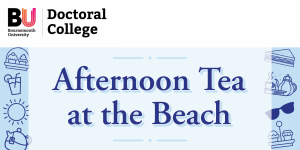



 We’re pleased to announce we’ll also be hearing from Janine Bestall and Louise Hayes about the NIHR Public Health Research (PHR) programme. They will be giving an overview of the programme, the assessment process and what the funding panels are looking for.
We’re pleased to announce we’ll also be hearing from Janine Bestall and Louise Hayes about the NIHR Public Health Research (PHR) programme. They will be giving an overview of the programme, the assessment process and what the funding panels are looking for.
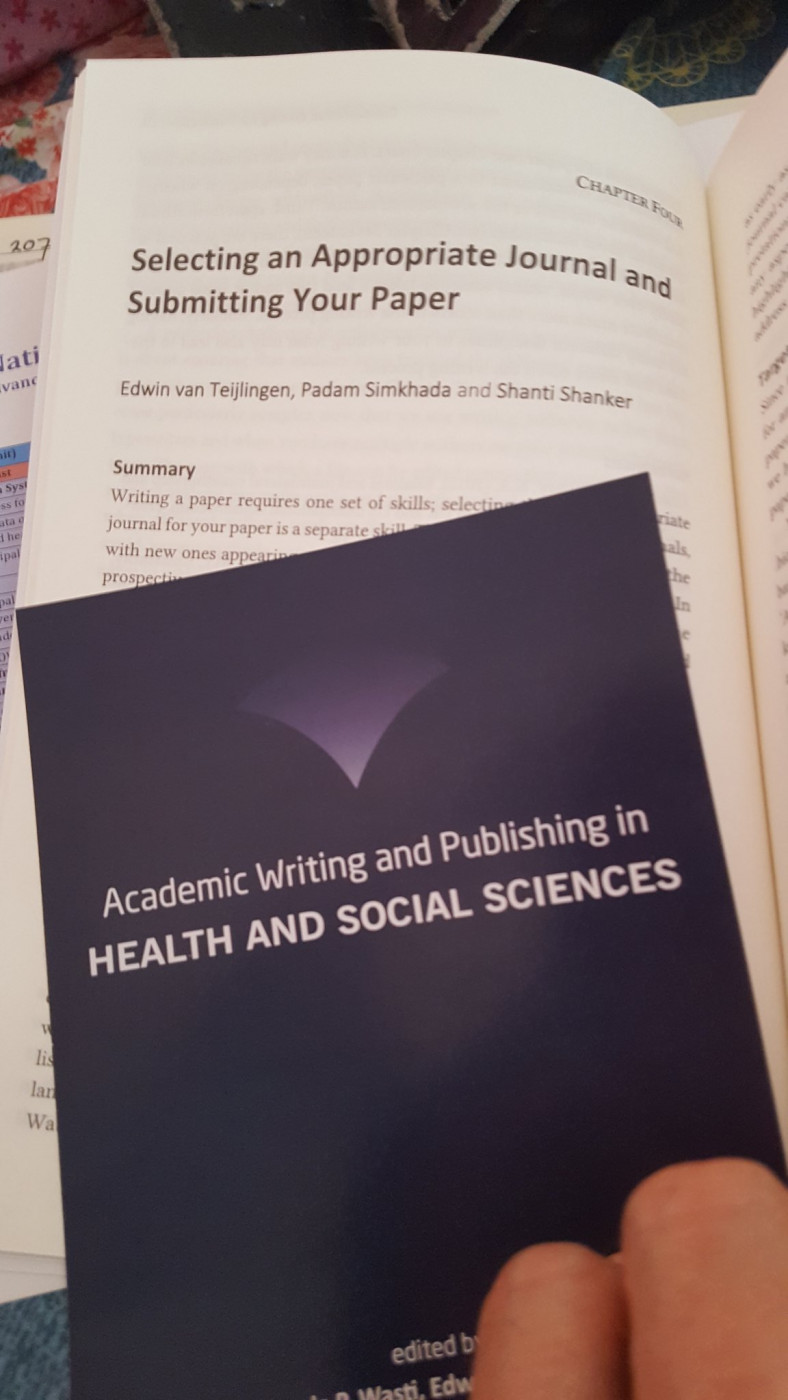



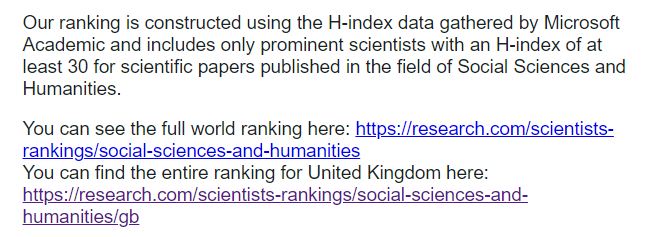


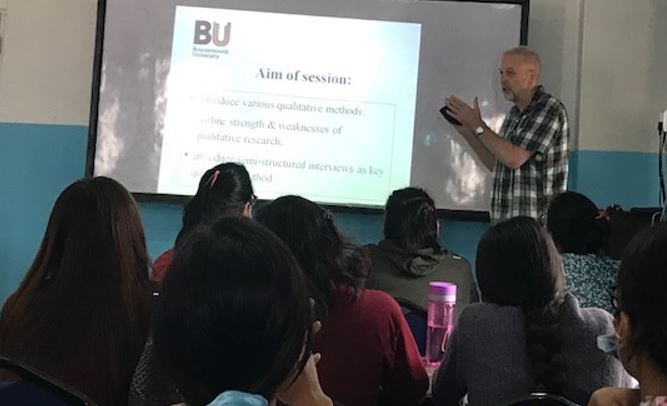
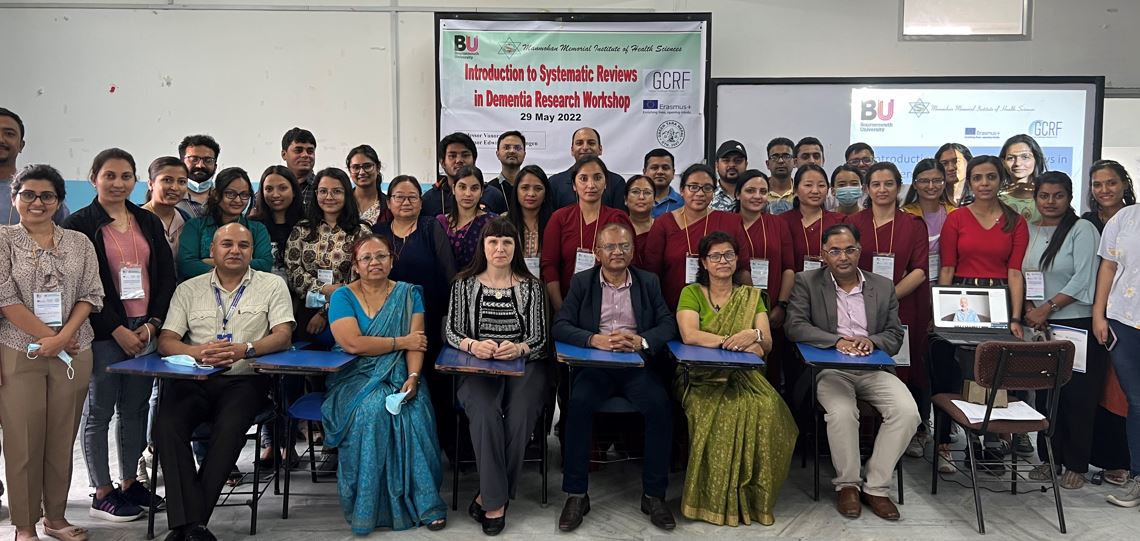
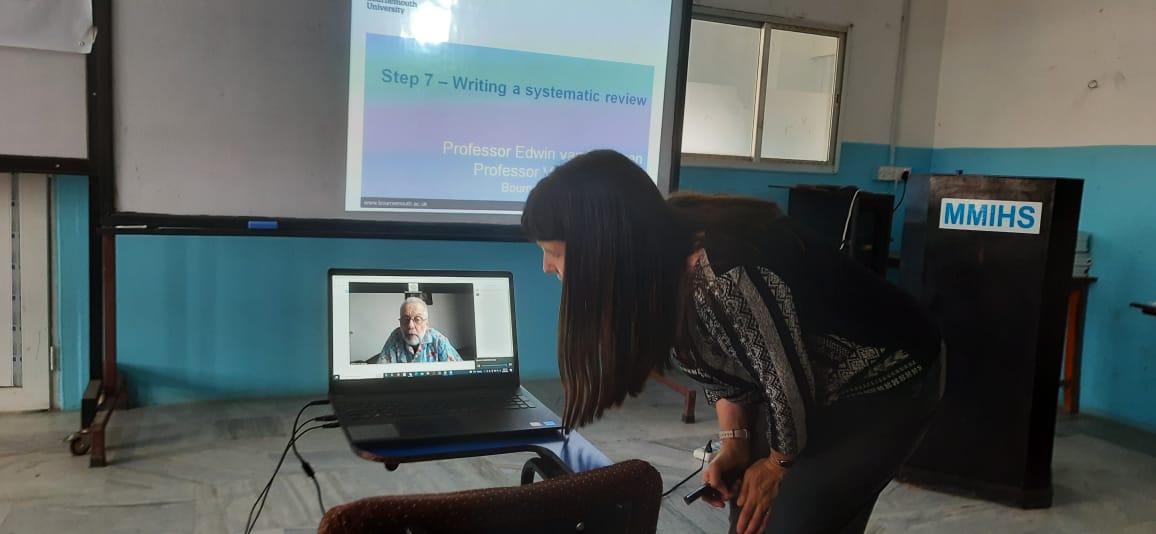

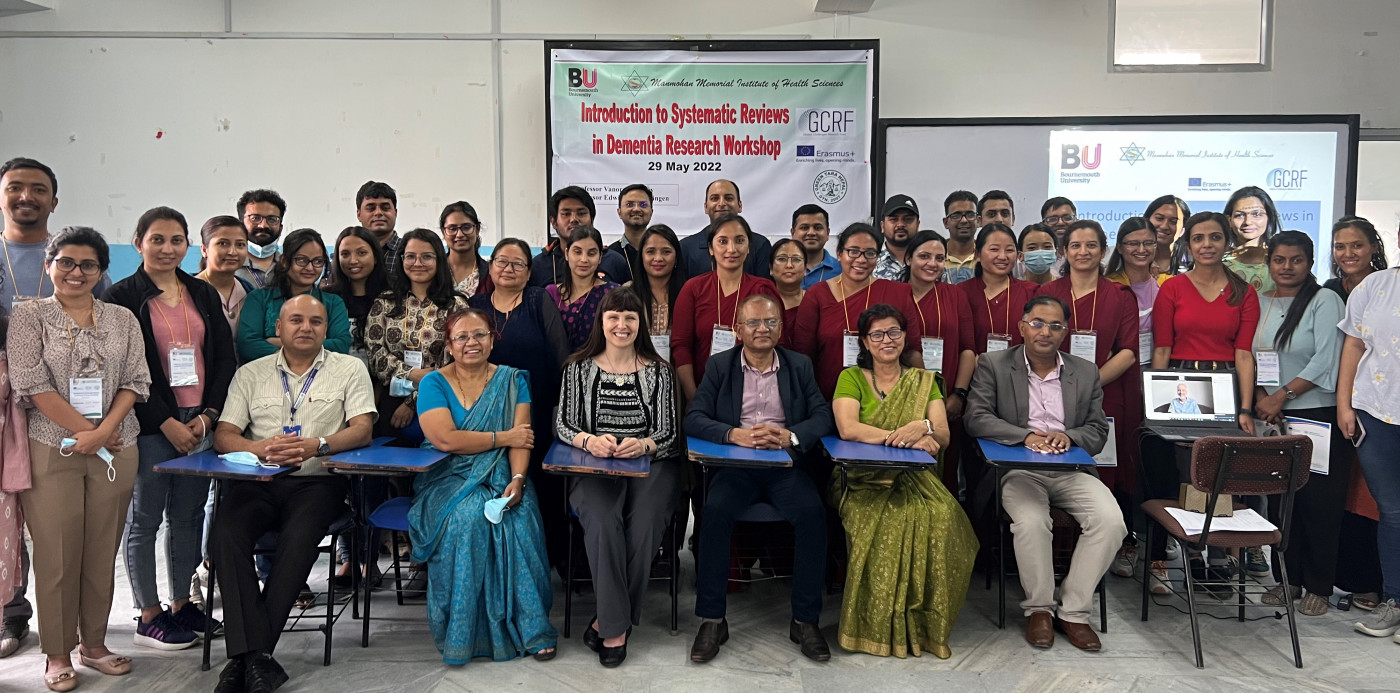

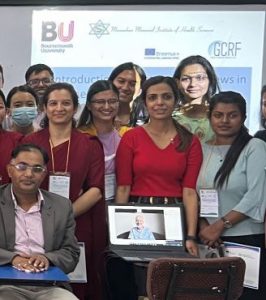
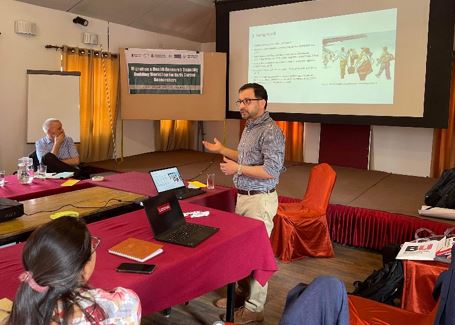
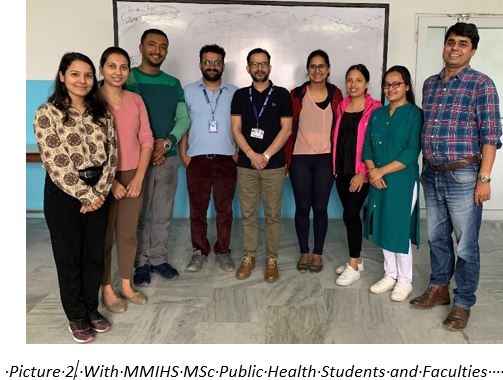
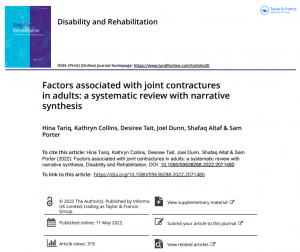


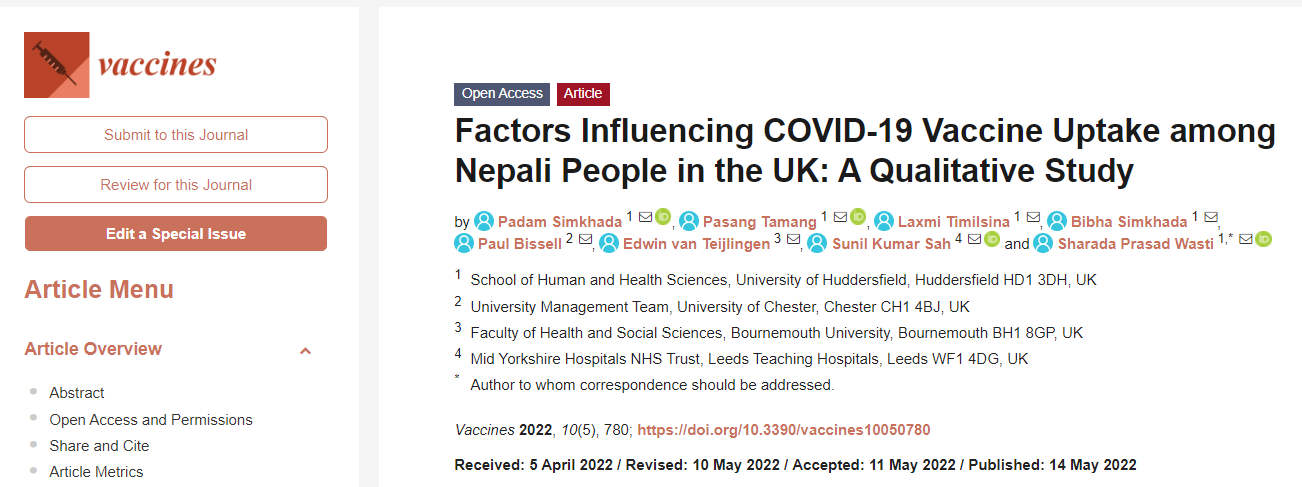

 We’re pleased to announce a new guide to support BU staff with managing new and existing staff employed on external R&KE awards, as well as staffing information to include on applications for external funding. The ‘BU Guide for managing staff employed on external R&KE applications and awards’ can be found on the intranet
We’re pleased to announce a new guide to support BU staff with managing new and existing staff employed on external R&KE awards, as well as staffing information to include on applications for external funding. The ‘BU Guide for managing staff employed on external R&KE applications and awards’ can be found on the intranet 










 Conversation article: London Marathon – how visually impaired people run
Conversation article: London Marathon – how visually impaired people run Horizon Europe News – December 2023
Horizon Europe News – December 2023